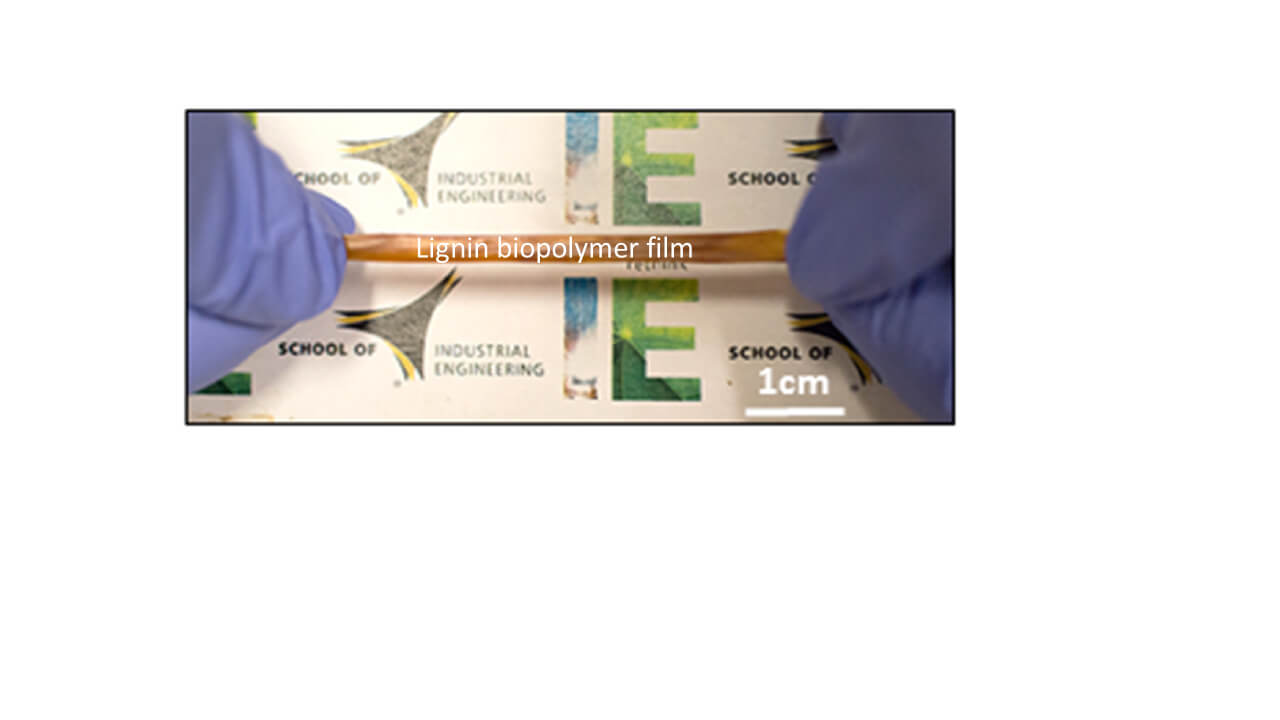An innovation turning waste material into stretchable devices may soon provide a new option for creating self-powered biomedical inventions.
A team from Purdue University used lignin to create triboelectric nanogenerators. TENGs help conserve mechanical energy and turn it into power. Lignin is a waste byproduct from the pulp and paper industries, and it is one of the most abundant biopolymers on Earth.
“Lignin offers a valuable opportunity as a potential constituent in wearable devices,” said Wenzhuo Wu, the Ravi and Eleanor Talwar Rising Star Assistant Professor of industrial engineering in Purdue’s College of Engineering, who led the development team. “The lignin-based triboelectric devices can harvest the mechanical energy from the human body and use such electric power to support the operations of other biomedical devices.”
The lignin-based TENGs are created by integrating lignin with starch to produce a biocompatible film for harvesting mechanical energy.
“This opens doors to new technologies that utilize waste materials for economically feasible and ecologically friendly systems in self-powered biomedical application,” Wu said. “We innovatively engineer the interactions between lignin and several widely available materials, such as glycerol and starch, to transform the brittle and dark lignin films into stretchable, wearable and semi-transparent films. Those films can effectively convert mechanical signals such as bending and touching into electric power.”
 An innovation turning waste material into stretchable devices may soon provide a new option for creating self-powered biomedical inventions. (Image provided) Download image
An innovation turning waste material into stretchable devices may soon provide a new option for creating self-powered biomedical inventions. (Image provided) Download imageWu said the lignin-based triboelectric devices also could function as self-powered sensors to detect and monitor the mechanical activities from the human body in applications such as health monitoring, human-machine interface, teleoperated robotics, consumer electronics and virtual and augmented reality technologies.
The devices also could be used for other applications such as energy-efficient buildings and environmental sensors. Wu and his team have created other similar devices, including an innovation that uses chitosan to create TENGs.
The team worked with the Purdue Research Foundation Office of Technology Commercialization to patent the technology. The office recently moved into the Convergence Center for Innovation and Collaboration in Discovery Park District, adjacent to the Purdue campus.
The creators are looking for partners to commercialize their technology. For more information on licensing this innovation, contact Matt Halladay of OTC at [email protected] and reference track code 2017-WU-67949.
About Purdue Research Foundation Office of Technology Commercialization
The Purdue Research Foundation Office of Technology Commercialization operates one of the most comprehensive technology transfer programs among leading research universities in the U.S. Services provided by this office support the economic development initiatives of Purdue University and benefit the university’s academic activities through commercializing, licensing and protecting Purdue intellectual property. The office recently moved into the Convergence Center for Innovation and Collaboration in Discovery Park District, adjacent to the Purdue campus. In fiscal year 2019, the office reported 136 deals finalized with 231 technologies signed, 380 disclosures received and 141 issued U.S. patents. The office is managed by the Purdue Research Foundation, which received the 2019 Innovation and Economic Prosperity Universities Award for Place from the Association of Public and Land-grant Universities. In 2020, IPWatchdog Institute ranked Purdue third nationally in startup creation and in the top 20 for patents. The Purdue Research Foundation is a private, nonprofit foundation created to advance the mission of Purdue University. Contact [email protected] for more information.
About Purdue University
Purdue University is a top public research institution developing practical solutions to today’s toughest challenges. Ranked the No. 6 Most Innovative University in the United States by U.S. News & World Report, Purdue delivers world-changing research and out-of-this-world discovery. Committed to hands-on and online, real-world learning, Purdue offers a transformative education to all. Committed to affordability and accessibility, Purdue has frozen tuition and most fees at 2012-13 levels, enabling more students than ever to graduate debt-free. See how Purdue never stops in the persistent pursuit of the next giant leap at purdue.edu.
Writer: Chris Adam, 765-588-3341, [email protected]
Source: Wenzhuo Wu, [email protected]


